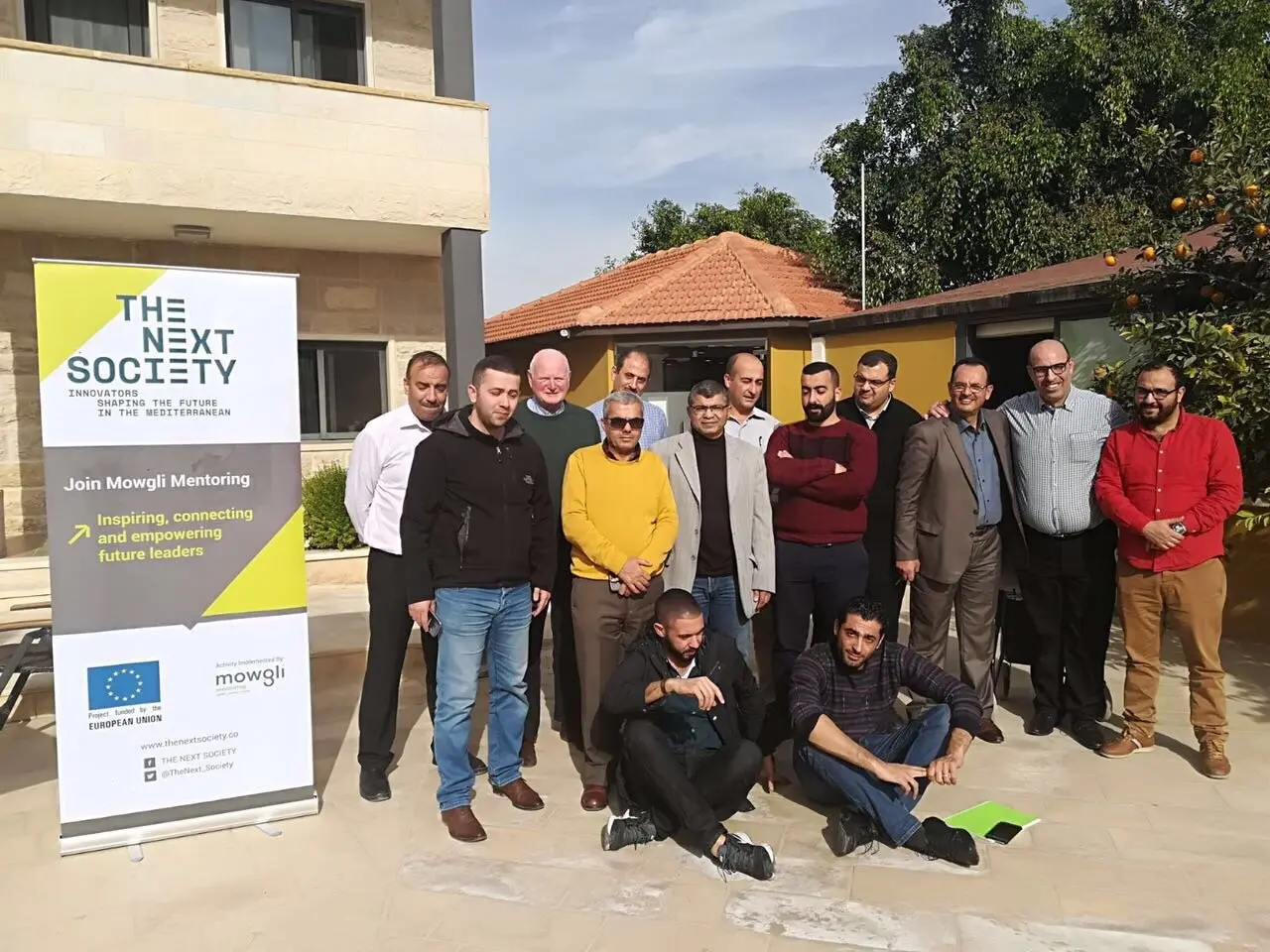“Mentoring reveals the actual capacity of an individual amidst scattered ideas. It cannot be achieved without a strong relationship that allows straight, honest, and deep conversations about ideas, feelings, and emotions. ”— Abdulrahman Sawayfeh. Mentor, THE NEXT SOCIETY.When THE NEXT SOCIETY mentoring programmes begun in 2018, our role as Mowgli Mentoring was to further embed mentoring into the MENA ecosystem by not only directly supporting innovators with mentoring, but the organizations that support them as well. Abdulrahman Sawayfeh is one of the 130 mentors trained within THE NEXT SOCIETY initiative as a cluster manager working for the Palestinian Stone Cluster. He shares his mentoring journey and how it has influenced his leadership style.

>
“My experience as a mentor within THE NEXT SOCIETY was non-traditional as it focused more on building trust with my mentee, than following a set of rules. Mentoring is a mutually benefiting relationship for both the mentor and mentee, and while it’s meant to keep the mentee motivated, the mentor similarly has the ability to learn and exchange experience in a new field, and be challenged with new ideas.
Mentoring is not set up as a systematic process. It digs beyond the words to reveal the actual capacity of an individual amidst scattered ideas. It cannot be achieved without a strong relationship that allows straight, honest, and deep conversations about ideas, feelings, and emotions.”
Over the past year, we’ve seen mentoring play a key role in building resilient entrepreneurs and leaders. Abdulrahman shares:
>
“Mentoring can continuously remind entrepreneurs of their fundamental goals, and avoid distractions so as to overcome challenges. Just like any other professional, entrepreneurs can become too familiar with their routine life, and lose motivation and focus. Mentoring provides a sense of accountability to keep them focused by identifying distractions.”
Since training as a mentor, Abdulrahman has mentored three individuals and further supported a group of 70 individuals through mentoring sessions which he merged with training.
>
“I have learnt new things through every one of these sessions, and I expect the mentees have learnt something helpful as well. I use my role to challenge assumptions, and ideas about business and startups. This ensures that the entrepreneurs I support fully understand the dynamics of business and are able to have a broad analysis of all factors around them. I’ve seen positive reactions following the mentoring best practices I’ve applied and an increase knowledge-based decision-making. I feel satisfied with the mentoring results.”
For mentoring to be effective, there needs to be mutual trust and confidentiality. Many of our mentors and mentees go on to establish friendships beyond the mentoring relationship and this has been no different for Abdulrahman.
>
“The key highlight for me has been the friendships developed. Many of the entrepreneurs have become friends, and they call frequently when they need to discuss something or get some advice. In addition, some of the entrepreneurs have successful businesses now.”
Because the term mentoring is so broadly used, it’s not uncommon for more experienced professionals to assume that they have the skills to mentor. Mentor training ensures that mentors veer away from the natural tendency to provide answers, allowing their mentees to take charge of their growth journey, with their support.
>
“For me, the best thing I learnt from the mentoring concept is to allow the discovery process to take place. This enables my mentees to self-discover with my support so that they can find the best solutions to their challenges which makes it different from traditional forms of support such as consulting services. ”
As THE NEXT SOCIETY mentoring programme comes to a close this year, we’re proud to have enabled a better standard of mentoring within the clusters we’ve supported, and clearly defined mentoring for the cluster managers to practice more effectively within, and beyond their organizations. >
“Mentoring is trust-based. It is a safe intervention because there is no conflict of interest, and as a mentor, your willingness to help is the only motive. Once the mentor and mentee trust each other, the rest comes by itself.”

